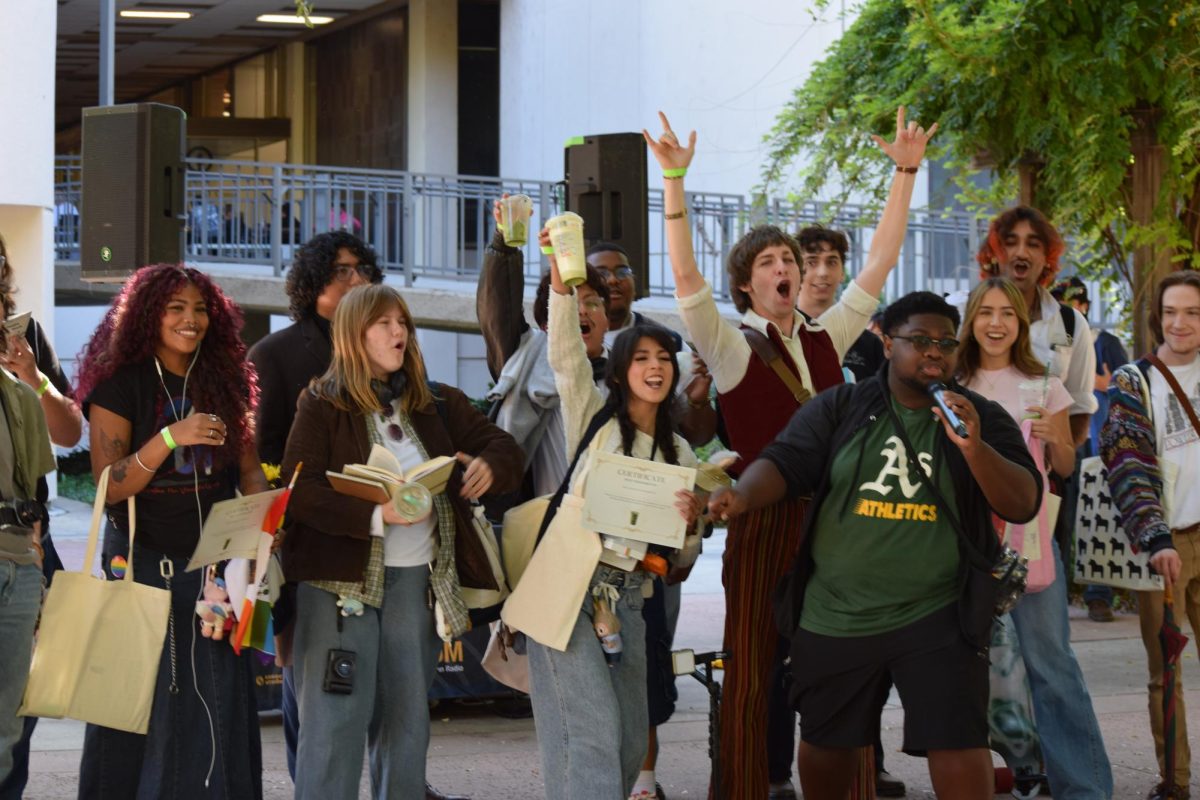CSU Board acts on Assembly oil bill
May 11, 2011
To date, there is no sustainable source of revenue for higher education in California; support for Assembly Bill 1326 will be decided today by the California State University Board of Trustees.
Approval of AB 1326 would provide a 12.5 percent oil and natural extraction severance tax to fund the University of California, CSU and community college systems.
Sacramento State will receive part of the $2 billion annual revenue generated that goes directly into the California Higher Education Fund for classroom instruction and student support services.
Most states, such as Texas and Alaska, have an oil and natural extraction tax.
The tax is based on the amount for the barrel to come from the ground and is similar to a sales tax. However, taxing will not affect the cost of gas at the pump.
Nora Walker, junior history major, said this bill would help out with the budget crunch and would generate money for the CSU.
“It would benefit the entire system with more classes, students who would be able to graduate on time more. There would be more financial aid offered,” Walker said. “The funding would go toward student social services, which is earmarked for needed student services – which are what is hurting now.”
Sac State students who sat in at Sacramento Hall for 62 hours said one of their demands is for Sac State President Alexander Gonzalez to publicly support AB 1326.
John Kepley, director of Public Affairs, said it would not be Gonzalez’s position to advocate for a bill because it is a decision made by the CSU Board of Trustees.
The Board of Trustees is made of 25 members who meet six times a year to communicate and decide on rules, regulationsand policies.
CSU Chancellor Charles Reed will be attending a meeting this week to make a decision on whether to support AB 1326.
Reed was a director of Florida Progress Corp., which was a corporate board that oversaw the utility company that distributed power in St. Petersberg, Fla. The corporation held $6.1 billion in assets when Reed left the corporation in 1997.
“The president is just one president in a 23-campus system that is a policy decision by the Board of Trustees,” Kepley said.
Senior sociology major Amanda Mooers said a small group of Sac State students attended the May 3 hearing on AB 1326 because it was something neither Gonzalez nor Reed wanted to do.
“California should make the investment in higher education with AB 1326 because if we don’t, the CSU will run dry and stop producing because it won’t have the money to fund itself,” Mooers said.
The California Faculty Association supports AB 1326 because it will allow the CSU to have funds for a general operating budget such as rolling back student fees and patching the holes in hiring.
Sociology professor Kevin Wehr, CFA Capitol chapter, professor, said the university is only hiring professors for critical operational needs. New faculty has not been hired to refill retired faculty positions.
If the bill passes the CSU will be able to work in a stable environment instead of not knowing what to expect without a revenue source for higher education, Wehr said. Instead of allowing oil corporations to exploit public resources, AB 1326 would apply the funds for beneficial use, Wehr said.
At the hearing on May 3, the students who attended heard the opponents’ main arguments against AB 1326, where opponents argued it would kill jobs in the oil industry and more funding would be put into public primary schools.
Mildred Garcia Gomez, junior social work major, attended the hearing and said it was interesting to hear Brandon Sisk, a California State Student Association representative, who spoke up for students.
“If the bill passes, it will be great with more classes available. It’s so hard to get into classes as it is and you don’t know if they will be there next semester,” Gomez said. “This bill will take that stress away from students and attract new students to the campus.”
Eric Lee, a junior political science major at UC Davis, pays $13,000 a year for tuition, not including books and living expenses.
“Right now, they don’t have to pay a cent to extract water or oil and there are high risks involved too, such as what happened in the Gulf in Mexico,” Lee said.





























































































































